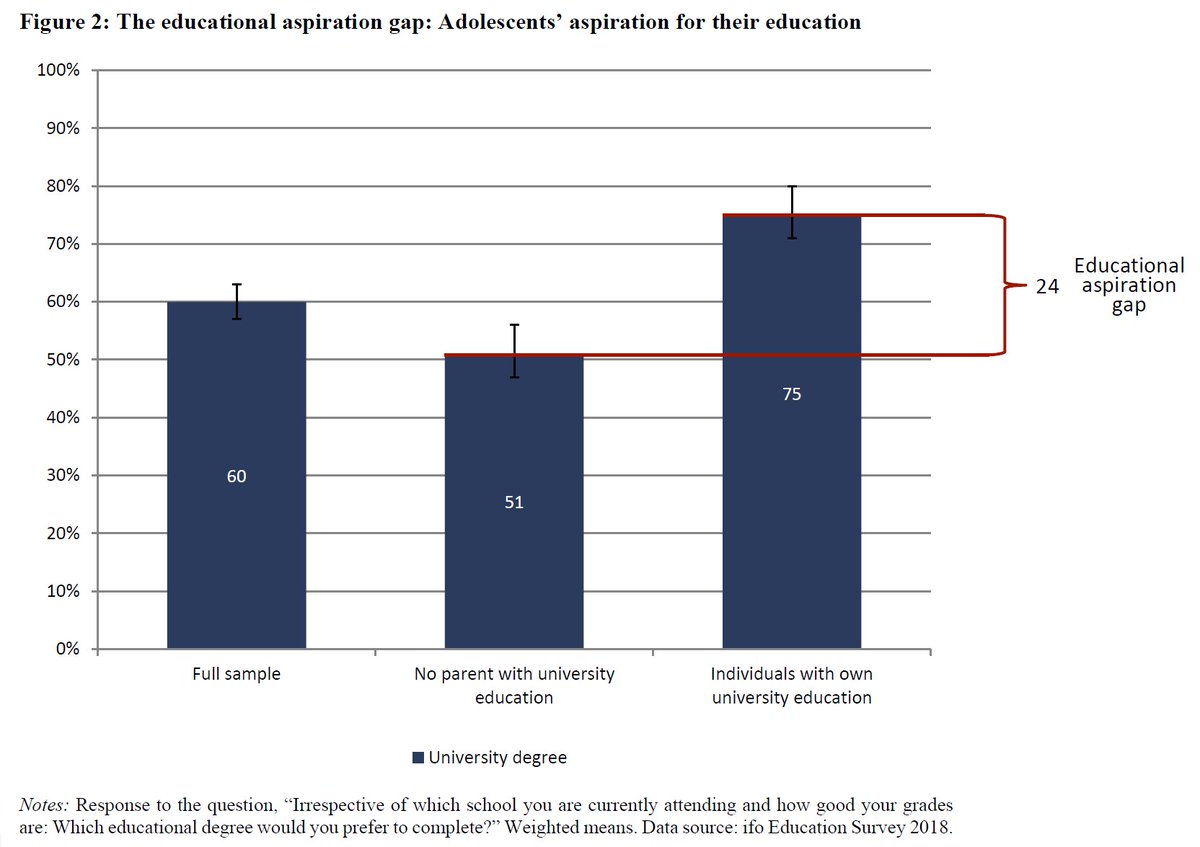
Professor of Economics, @LMU_Muenchen; Director, ifo Center for the Economics of Education, @ifo_Institut
How to get URL link on X (Twitter) App


 Unique German setting:
Unique German setting:
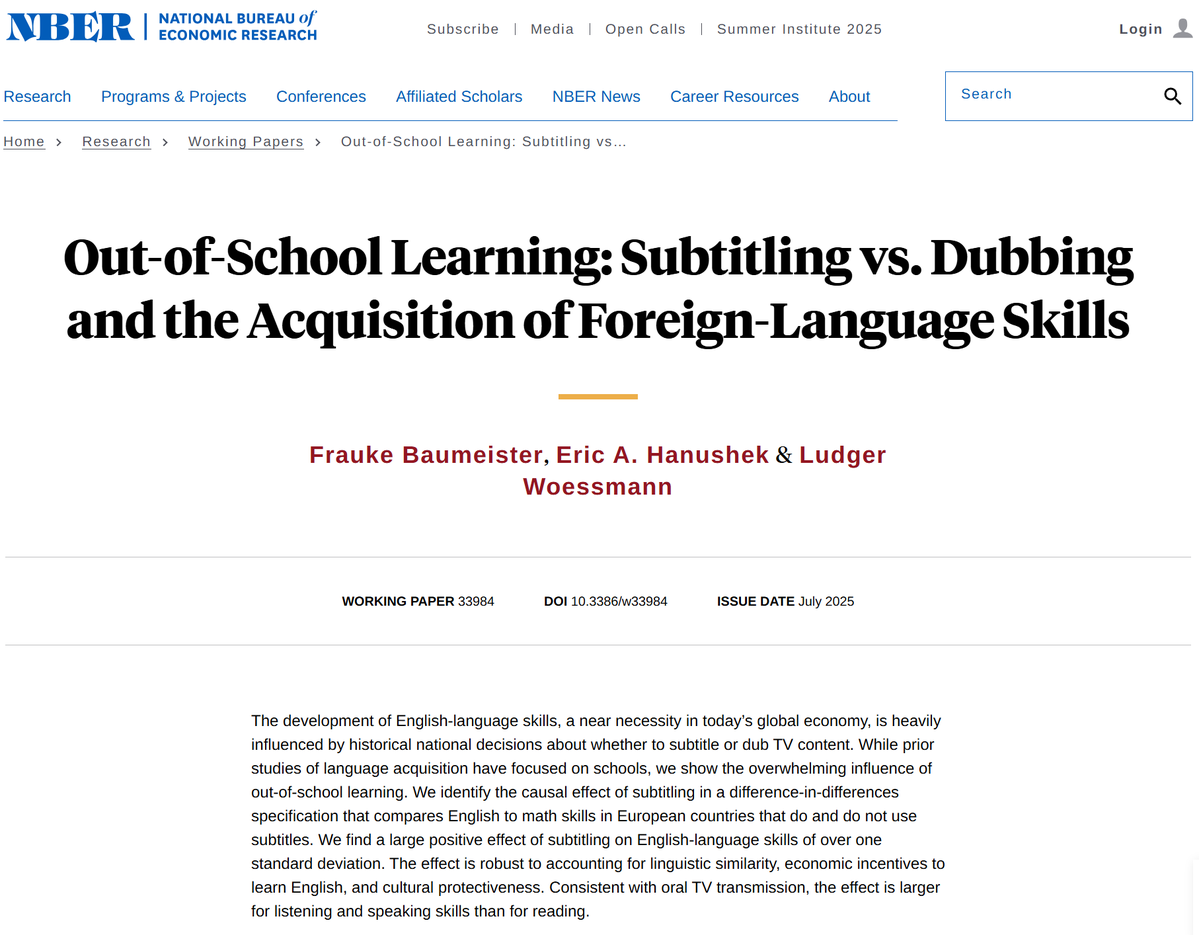
 Developing English-language skills is a near necessity in today’s global economy🌐
Developing English-language skills is a near necessity in today’s global economy🌐
 “Patience and Subnational Differences in Human Capital:
“Patience and Subnational Differences in Human Capital: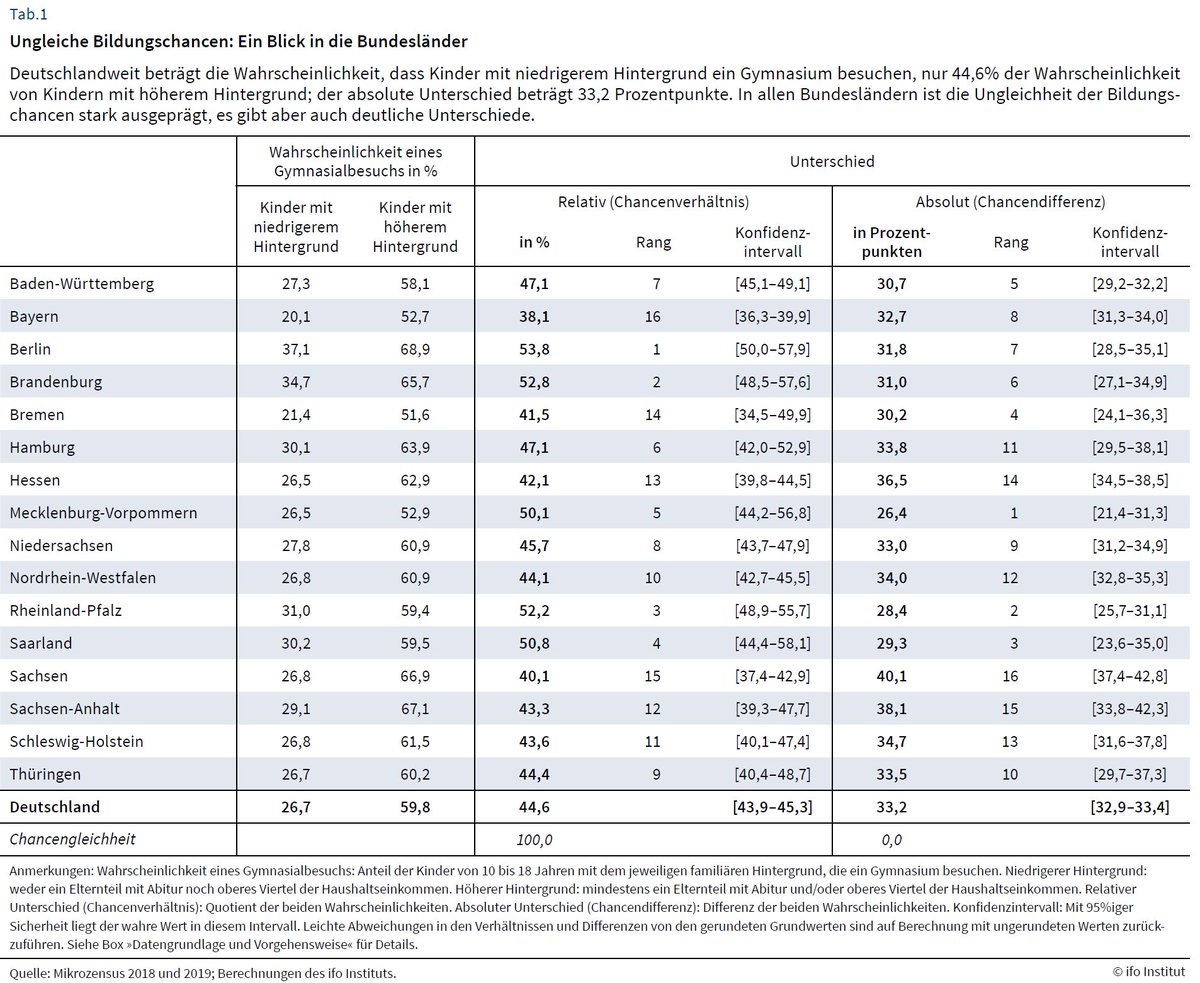
 Wir vergleichen die Wahrscheinlichkeit eines Gymnasialbesuchs für
Wir vergleichen die Wahrscheinlichkeit eines Gymnasialbesuchs für

 Our framework conceptualizes religion as a “deeper” determinant of growth inputs that shapes indiv prefs, societal norms + institutions.
Our framework conceptualizes religion as a “deeper” determinant of growth inputs that shapes indiv prefs, societal norms + institutions.



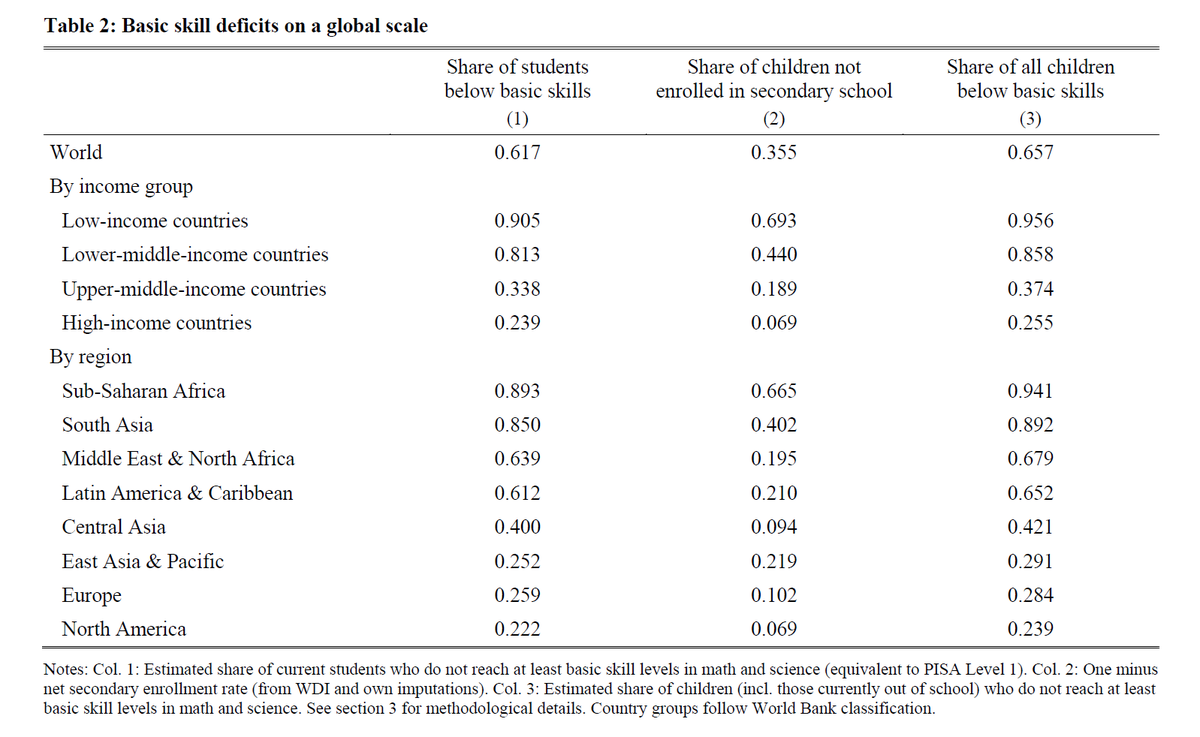 Ensuring that all of the world’s youth have at least basic skills is a prime development goal by itself,
Ensuring that all of the world’s youth have at least basic skills is a prime development goal by itself,


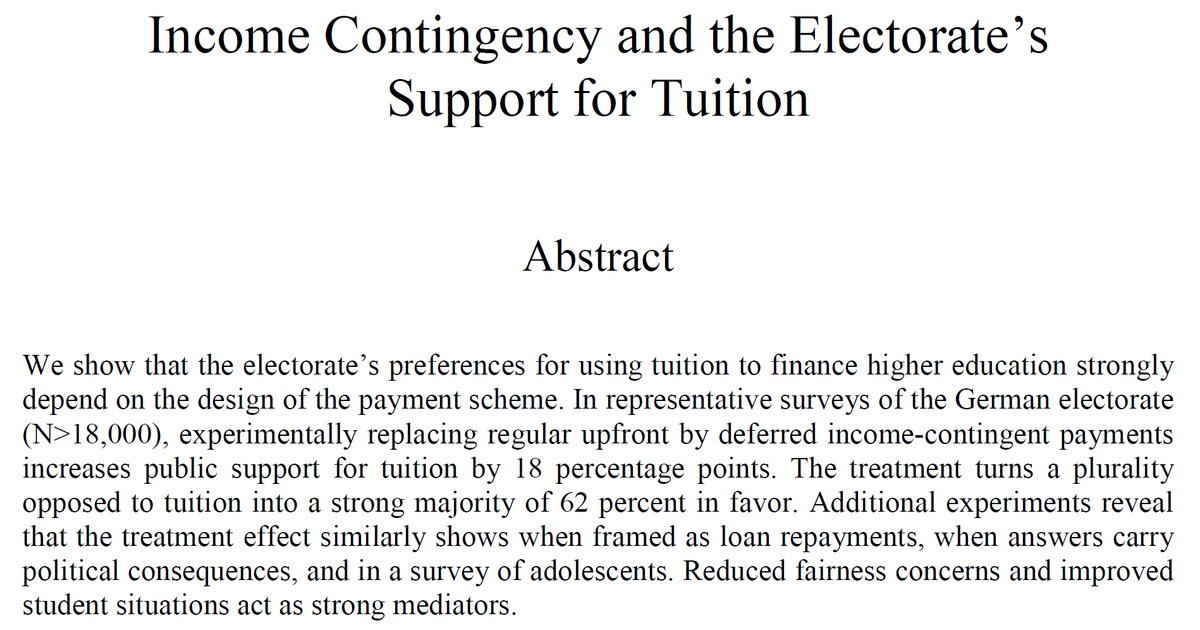
 Paper shows that electorate’s preferences for using tuition to finance higher education🧑🎓strongly depend on design of payment scheme.
Paper shows that electorate’s preferences for using tuition to finance higher education🧑🎓strongly depend on design of payment scheme.
 In our representative German survey, 74% of university graduates, but only 36% of those w/o a univ degree favor a univ degree for their children.
In our representative German survey, 74% of university graduates, but only 36% of those w/o a univ degree favor a univ degree for their children.
